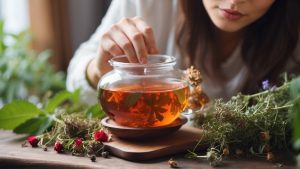 Discover the Top 5 Herbal Teas for Anxiety Relief Naturally
Discover the Top 5 Herbal Teas for Anxiety Relief Naturally
Introduction:
In today’s fast-paced world, anxiety has become an increasingly prevalent issue. Although indispensable, seeking professional assistance remains paramount in effectively managing severe anxiety. Incorporating Herbal Teas for Anxiety relief into your daily routine can provide gentle relief and promote relaxation. Let’s explore the top 5 Herbal Teas for Anxiety relief renowned for their anxiety-relieving properties, blending search intent with informative content to guide you toward soothing serenity. please continue with joymelife
1. Chamomile Tea: Harnessing the Power of Herbal Teas for Anxiety:
Chamomile, with its delicate floral aroma and mild flavor, has been cherished for centuries for its calming effects. Rich in antioxidants like apigenin, Chamomile tea can alleviate stress levels and enhance sleep quality, making it an ideal choice for unwinding after a long day. If you’re seeking Herbal Teas for Anxiety Relief, Chamomile should be at the top of your list.
How do herbal teas help in reducing anxiety?
- Herbal teas contain compounds like flavonoids and antioxidants that have calming effects on the nervous system, promoting relaxation and reducing anxiety symptoms.
Chamomile Tea Recipe:
Ingredients:
- One chamomile tea bag or 1-2 teaspoons of dried chamomile flowers
- 1 cup of water
- Optional: honey, lemon, or mint for flavor
Instructions:
- Boil water: Heat a single cup in a compact saucepan or kettle until it reaches boiling point.
- Prepare the tea: Place one chamomile tea bag or 1-2 teaspoons of dried chamomile flowers into a teapot or mug.
- Pour hot water: Carefully pour it over the chamomile tea bag or flowers once it reaches a rolling boil.
- Steep: Cover the teapot or mug and let the chamomile steep for 5-10 minutes. The bolder the brew becomes with each passing steeping duration.
- Strain (if using loose flowers): After steeping loose chamomile flowers, strain the tea before serving to ensure a smooth and flower-free experience.
- Sweeten (optional): Add honey, lemon, or mint to taste for added flavor, if desired.
- Serve and enjoy: Pour the chamomile tea into your cherished mug, settle in, and relish the comforting scent and taste. Whether piping hot or cooled for a revitalizing iced beverage, delight in every sip
Chamomile Tea Routine:
- Morning: Start your day with a cup of chamomile tea to promote relaxation and set a calm tone for the day ahead. Pair it with a healthy breakfast for a soothing start.
- Afternoon: Take a midday break and enjoy another cup of chamomile tea to ease any tension or stress built up during the morning. Use this time to pause, breathe deeply, and recharge.
- Evening: Wind down in the evening with a warm chamomile tea before bedtime. Its calming effects help you unwind from the day’s activities and prepare your body and mind for a restful night’s sleep.

2. Lavender Tea: A Soothing Cup for Herbal Teas for Anxiety:
Renowned for its enchanting fragrance, lavender isn’t just for aromatherapy; it’s also a potent Herbal tea for Anxiety relief when brewed into tea. Lavender tea helps soothe nerves and ease tension, offering a tranquil escape in each sip. Lavender tea is highly coveted for its knack for assuaging anxiety and fostering tranquility. Research suggests that the compounds found in lavender, such as linalool and linalyl acetate, have anxiolytic effects, helping to calm the nervous system and alleviate feelings of stress and tension.
Lavender Tea Recipe:
Ingredients:
- One teaspoon of dried lavender buds (organic, culinary grade)
- 1 cup water (filtered or spring water is preferred)
Instructions:
- Simmer the water in a petite saucepan or kettle.
- Position the desiccated lavender buds in a tea ball or a pot.
- Upon achieving a vigorous boil, drizzle the water atop the lavender buds.
- Envelop the pot or ball and allow the lavender to infuse for 5-7 minutes, tailored to your preference.
- Sieve the brew into a cup with a delicate mesh sieve or extract the ball.
- Permit the tea to cool gently before savoring its essence
- Optional Additions: Honey or agave syrup for sweetness
- Enhance the citrus essence with a delicate lemon slice while infusing an additional burst of freshness with a sprig of mint.
Are there any lifestyle changes that can complement the use of herbal teas for anxiety?
- Yes, adopting stress-reducing techniques such as mindfulness, exercise, and maintaining a healthy diet can complement the effects of herbal teas in managing anxiety.
Lavender Tea Routine:
Morning: Start your day with lavender tea to promote relaxation and mental clarity. Enjoy it alongside a nutritious breakfast to set a positive tone for the day ahead.
Midday: Take a break from your busy schedule and indulge in a soothing herbal tea, such as lavender tea, for anxiety relief. Use this time to pause, breathe deeply, and recenter yourself amidst any stresses or challenges you may be facing.
Afternoon: Combat the midday slump with a revitalizing cup of lavender tea. Its calming aroma and gentle effects can help alleviate fatigue and boost your mood, keeping you energized and focused for the rest of the day.
Evening: Unwind in the twilight hours by indulging in a comforting mug of lavender-infused tea as a delightful component of your nightly ritual. Sipping lavender tea before bed can promote relaxation, ease tension, and prepare your body and mind for a restful night’s sleep.
Before Meditation or Yoga: Enhance your meditation or yoga practice by enjoying lavender tea beforehand. Its calming properties help create a serene atmosphere and deepen your sense of mindfulness and presence.
Note: It’s essential to listen to your body and adjust your lavender tea consumption according to your preferences and potential sensitivities. Avoid consuming excessive amounts of lavender tea, especially if you’re pregnant, nursing, or have any underlying health conditions. Seek guidance from a healthcare expert should any doubts or inquiries arise regarding the consumption of lavender tea, particularly if you are taking medications or supplements that may interact with it. When seeking Herbal Teas for Anxiety relief, make safety your top priority and seek personalized advice from a healthcare professional at all times.
 3. Valerian Root Tea: A Natural Remedy in the Realm of Herbal Teas for Anxiety:
3. Valerian Root Tea: A Natural Remedy in the Realm of Herbal Teas for Anxiety:
Valerian root’s centuries-old renown rests upon its calming essence, rendering it a favored option for alleviating anxiety and enhancing sleep efficacy. Valerian tea may not have the most appealing taste. Still, its potent calming effects make it worthwhile for those seeking natural Herbal Teas for Anxiety Relief. Here’s a simple recipe for making Valerian root tea and a suggested routine for incorporating it into your daily life.
When exploring Herbal Teas for Anxiety, Valerian root tea undoubtedly deserves a prominent place on the list. Its time-honored reputation and potential benefits make it a go-to option for individuals seeking solace and tranquility in the midst of life’s turbulence.
Valerian Root Tea Recipe:
Ingredients:
- One teaspoon of dried Valerian root (or one tablespoon if using fresh)
- 1 cup of water
- Optional: honey or lemon for flavor
Note: Is honey good for diabetics?
You can read more about this at Sweetning naturally
Instructions:
- Bring the water to a boil in a small saucepan or kettle.
- Place the dried Valerian root in a teapot or heatproof mug.
- Pour the boiling water over the Valerian root.
- Cover the teapot or mug and let the Valerian root steep for 10-15 minutes.
- Steeping longer will result in a stronger tea.
- Strain the tea to remove the Valerian root solids.
- Enhance the taste by incorporating honey or lemon, according to your preference.
- Enjoy your Valerian root tea warm.
Valerian Root Tea Routine:
Evening Relaxation: Optimal enjoyment of Valerian root tea is experienced when sipped during the evening, ideally around 30 minutes to an hour before sleep. The tea’s soothing properties can help promote relaxation and prepare your body for sleep. Make it a part of your nightly wind-down routine to signal your body that it’s time to unwind and prepare for rest.
Stressful Situations: Brewing a cup of Valerian root tea can be a soothing remedy when feeling overwhelmed or stressed. Valerian root tea helps to ease nerves and alleviate anxiety, offering a comforting respite during tense moments. This natural solution promotes a sense of calmness, enabling you to tackle challenges more easily.
Occasional Use: Valerian root tea effectively manages anxiety and promotes relaxation. Still, using it occasionally rather than daily is crucial to avoid tolerance or dependency. Save it for times when you genuinely need extra support in managing stress or improving sleep quality.
Consultation with Healthcare Provider: Before incorporating Valerian root tea into your routine, especially if you have health issues or take medication, consult your healthcare provider for personalized advice on safety. By following this recipe and consuming Valerian root tea mindfully, you can enjoy its calming effects naturally one of the special Herbal Teas for Anxiety. Pay attention to your body’s response and adjust your intake for your well-being.
 4. Ginseng Tea: Powerful Weapon Among Herbal Teas for Anxiety
4. Ginseng Tea: Powerful Weapon Among Herbal Teas for Anxiety
Ginseng is celebrated as one of the strongest Herbal Teas for Anxiety Relief; its adaptogenic qualities enhance the body’s resilience against stress. Harnessing the power of ginseng tea can elevate vitality and sharpen cognitive acuity, rendering it a prime selection for individuals combatting fatigue associated with anxiety relief through herbal teas
Are there any side effects of ginseng for anxiety?
- Side effects may include headaches, digestive issues, and insomnia. Consult with a healthcare professional before use, especially if you have underlying health conditions or are taking medications.
Ginseng Tea Recipe:
Ingredients:
- 1-2 grams of dried ginseng root or ginseng tea bag
- 1 cup of water
- Optional: honey or lemon for flavor
Instructions:
- Commence by bringing a small saucepan or kettle to a vigorous boil with water.
- While the water is warming, prepare the ginseng root by rinsing it thoroughly under cold water to eliminate any soil or impurities.
- If opting for a ginseng tea bag, omit this step.
- The ginseng root or tea bag is introduced once the water reaches a vigorous boil.
- Decrease the heat to a minimum and allow the ginseng to infuse for 5-10 minutes.
- Ensure the saucepan remains covered to retain the steam.
- Post-infusion, remove the saucepan from the heat and strain the tea to eliminate particulates.
- Optionally, enhance the tea’s taste by sweetening it with honey or infusing it with a splash of lemon juice.
- Pour the ginseng tea into a cup while it’s still warm.
Ginseng Tea Routine:
Ginseng tea can be consumed at any time. Still, it’s often best enjoyed in the morning or early afternoon to help boost energy levels and mental clarity.
Start by incorporating one cup of ginseng tea into your daily routine and adjust the frequency based on your response and tolerance.
Avoid consuming ginseng tea late in the evening or close to bedtime, as it may interfere with sleep due to its stimulating properties.
Consistency is vital when experiencing the potential benefits of ginseng tea, so aim to incorporate it into your routine regularly for optimal results.
Ginseng Tea stands as a testament to the power of Herbal Teas for Anxiety. Its soothing properties and rich cultural history make it a timeless remedy for those seeking tranquility in a fast-paced world. Incorporate Ginseng Tea into your daily regimen and experience the calming benefits firsthand.
 5. Holy Basil Tea:
5. Holy Basil Tea:
Holy basil, known as tulsi, is revered in Ayurvedic medicine for its adaptogenic and anxiolytic properties. Holy basil tea can help combat stress and anxiety while supporting overall well-being. It is a valuable addition to your daily self-care routine as one of the best Herbal Teas for Anxiety. Here’s a simple recipe and routine for making Holy Basil Tea:
Holy Basil Tea Recipe:
Ingredients:
- 1-2 teaspoons of dried holy basil leaves or 3-4 fresh holy basil leaves
- 1 cup of water
- Optional: honey, lemon slices, or other sweeteners to taste
Instructions:
- Prepare the Holy Basil Leaves: If you’re using fresh holy basil leaves, rinse them thoroughly under cold water. If you’re using dried holy basil leaves, measure the desired amount.
- Boil the Water: Bring a single cup of water to a vigorous boil on medium heat in a petite saucepan.
- Add the Holy Basil Leaves: Add the holy basil leaves to the saucepan once the water reaches a boil. If using fresh leaves, bruise them slightly with a spoon or muddler to release their flavor.

- Steep the Tea: Reduce the heat to low and let the holy basil leaves steep in the hot water for 5-10 minutes. Cover the saucepan with a lid to retain the heat and aroma.
- Strain the Tea: Once the infusion is complete, withdraw the saucepan from the heat source and filter the tea into a cup utilizing either a fine mesh sieve or a tea strainer to eliminate any remnants of leaves.
- Sweeten to Taste: Add honey, lemon slices, or
 other sweeteners to taste if desired. Stir the tea until the sweeteners are fully dissolved.
other sweeteners to taste if desired. Stir the tea until the sweeteners are fully dissolved. - Serve and Enjoy.
Holy Basil Tea Routine:
Enjoy holy basil tea as part of your daily routine to experience its health benefits and promote overall well-being.
Consider incorporating holy basil tea into your morning ritual for a refreshing start to the day, or enjoy it in the evening to unwind and relax before bedtime.
Aim to drink 1-2 cups of holy basil tea daily to reap its anxiety-reducing and stress-relieving effects. Adjust the strength and frequency of the Herbal Teas for Anxiety according to your preferences and needs.
Take advantage of holy basil tea’s adaptogenic properties to help your body adapt to stress and maintain balance during challenging times.
Conclusion:
Incorporating Herbal Teas for Anxiety Relief into your daily routine can provide natural relief from anxiety, promoting relaxation and a sense of well-being. Whether you prefer chamomile’s floral notes or Holy Basil’s refreshing aroma, these Herbal Teas for Anxiety suit every taste and preference. Integrating these exceptional top 5 herbal infusions into your self-care regimen empowers you to address anxiety while fostering your mental well-being proactively.

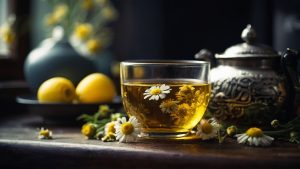

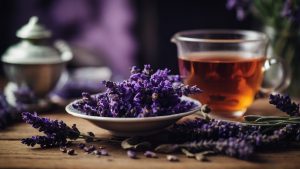
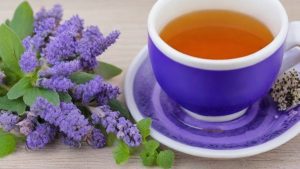
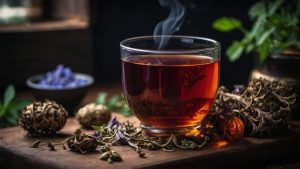 3. Valerian Root Tea: A Natural Remedy in the Realm of Herbal Teas for Anxiety:
3. Valerian Root Tea: A Natural Remedy in the Realm of Herbal Teas for Anxiety: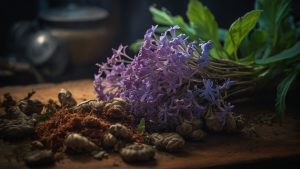
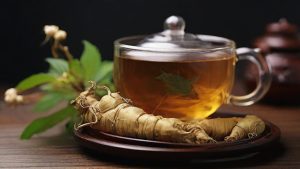 4. Ginseng Tea: Powerful Weapon Among Herbal Teas for Anxiety
4. Ginseng Tea: Powerful Weapon Among Herbal Teas for Anxiety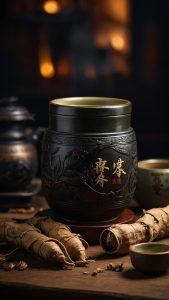
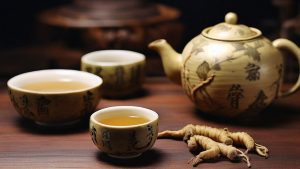
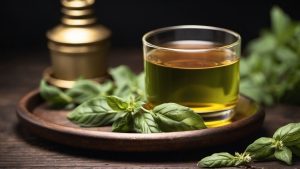 5. Holy Basil Tea:
5. Holy Basil Tea: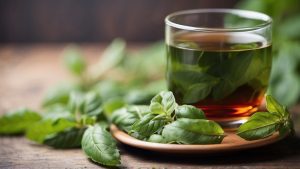
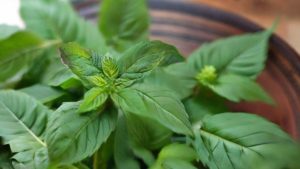
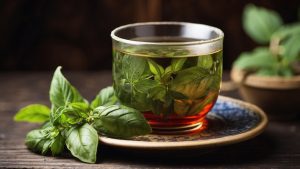
 other sweeteners to taste if desired. Stir the tea until the sweeteners are fully dissolved.
other sweeteners to taste if desired. Stir the tea until the sweeteners are fully dissolved.
